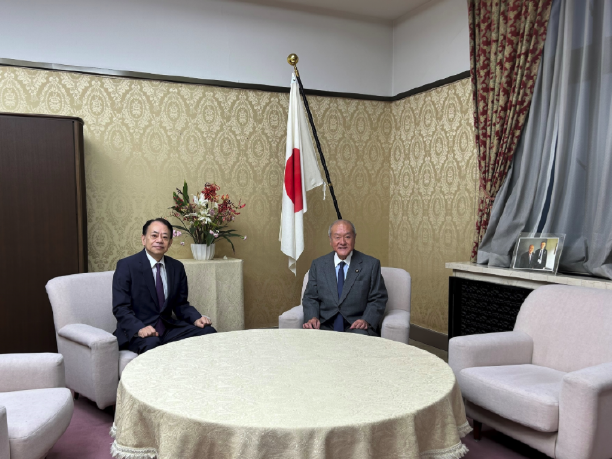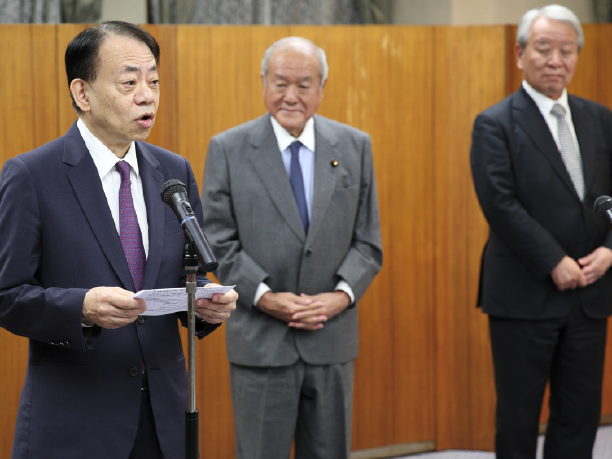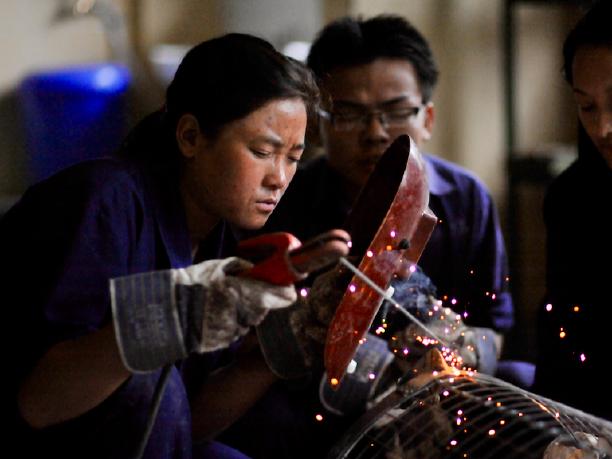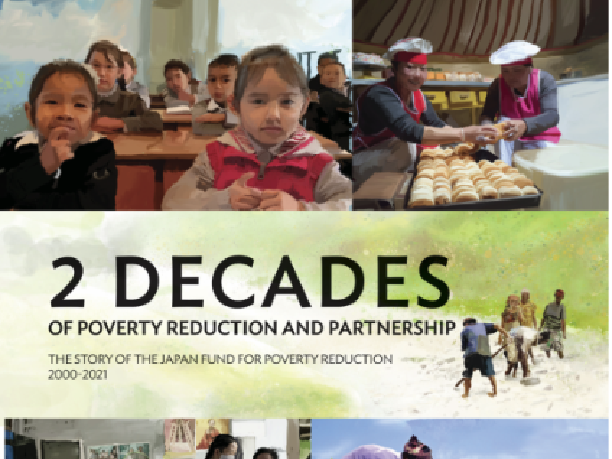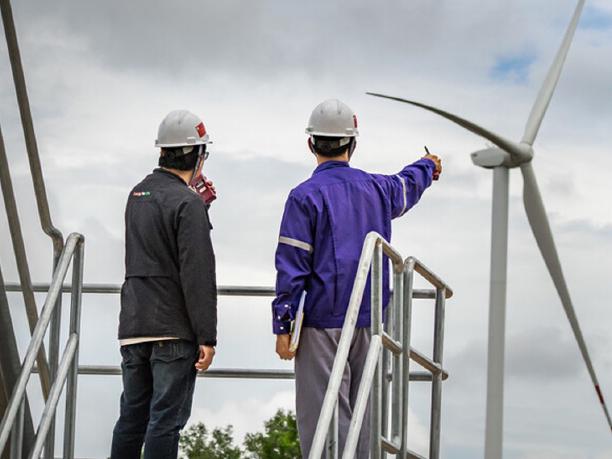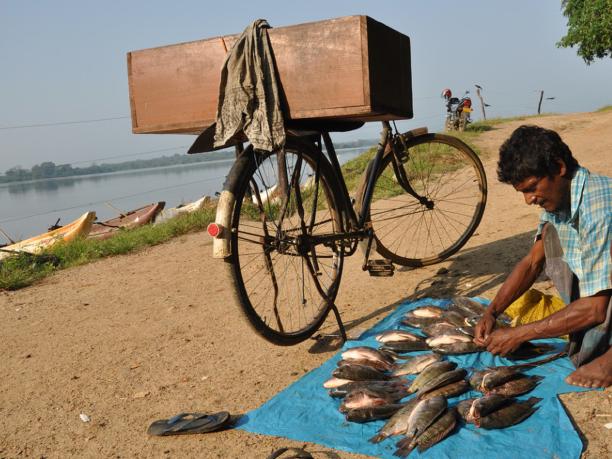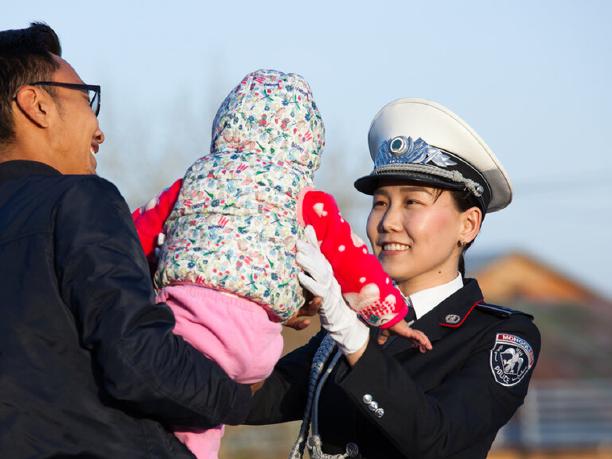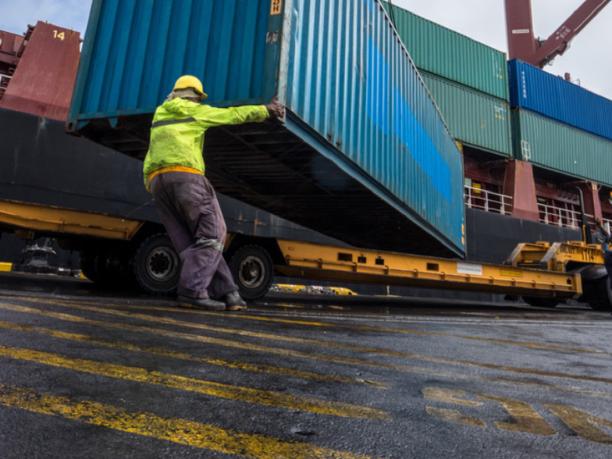Japan
Listen to the article
Cumulative
- Project-Specific Cofinancing $19.6 billion
- Contributions Committed to Trust Funds $2.6 billion
2023
- Project-Specific Cofinancing $2.1 billion
- Trust Funds Contribution $88.1 million
Japan’s Ministry of Foreign Affairs (MOFA) handles official development assistance through the Japan International Cooperation Agency (JICA), while the Ministry of Finance oversees its loan aid together with MOFA. JICA provides extensive development support to its neighbors in the Asia and Pacific region through loan aid, technical cooperation, and grant aid. Its operational focus areas are (i) realizing a free and open Indo-Pacific and demonstrating leadership in the international community, (ii) cultivating future leaders responsible for the development of their countries, (iii) strengthening initiatives for climate change and environmental issues, and (iv) contributing to revitalizing Japan’s economy and society while promoting understanding for cultural diversity within Japan.
In December 2015, ADB and JICA signed a memorandum of understanding (MOU) for Strategic Partnership for Sustainable and Inclusive Development through the Promotion of Quality Infrastructure Investment in Asia and the Pacific. Under this partnership, ADB and JICA established Leading Asia’s Private Infrastructure Fund (LEAP), which provided cofinancing to nonsovereign infrastructure projects at different stages of development. In 2023, LEAP reached the end of its investment period and was succeeded by LEAP 2 in December 2023.
In May 2017, ADB and JICA signed an MOU to establish a strategic partnership for sustainable, resilient, and inclusive development by strengthening health security and promoting universal health coverage in Asia and the Pacific.
ADB also works with other ministries, such as the Ministry of the Environment, Japan (MOEJ) and the Ministry of Agriculture, Forestry and Fisheries (MAFF). In May 2020, ADB and MOEJ extended for the second time the letter of intent originally signed in June 2014, with the first extension signed in March 2017. It aims to strengthen, facilitate, and develop cooperation in the field of environment, with a focus on environmental protection and improvement. In September 2022, ADB and MAFF signed a memorandum of cooperation, complemented by a high-level policy dialogue, to promote sustainable, resilient, and inclusive agri-food systems in the Asia and Pacific region.
Highlights of ADB–Japan Engagement in 2023:
Sovereign Cofinancing. Sovereign project-specific cofinancing with the Japan International Cooperation Agency (JICA) in 2023 reached $2.1 billion, of which $1.7 billion is a loan to support the Philippines in the construction of a 54.6-kilometer section of a railway that will provide affordable, reliable, and safe public transport; reduce greenhouse gas emissions; and cut the journey time by half to less than 1 hour. JICA also committed $226.6 million in loan cofinancing to help Indonesia achieve faster growth that is both inclusive and sustainable, and $209 million for Bangladesh’s continued economic recovery from the COVID-19 pandemic.
Nonsovereign Cofinancing. The Trade and Supply Chain Finance Program (TSCFP) supported over 3,080 transactions valued at $2.3 billion with banks domiciled in Japan from inception to December 2023. During the same period, the TSCFP supported over 2,770 Japanese exports and/or imports valued at $1.5 billion. In 2023 alone, the TSCFP supported 66 transactions valued at $75.2 million, with banks domiciled in Japan and supported 152 Japanese exports and/or imports valued at $194.3 million. Exports and/or imports were mainly to or from Viet Nam, Pakistan, and Bangladesh. Underlying goods involved mostly raw and non-energy commodities, food and agriculture-related goods, as well as automotive and parts.
Japan has also supported ADB’s TSCFP and provided a total of $1.5 million through the Regional Cooperation and Integration Fund that finances TSCFP initiatives related to trade and supply chain finance capacity development, safeguards, gender, and anti-corruption and integrity measures.
Trust Funds. In 2023, Japan committed $88.1 million to five trust funds: the Japan Fund for Prosperous and Resilient Asia and the Pacific, the Domestic Resource Mobilization Trust Fund, the Japan Fund for the Joint Crediting Mechanism, the Japan Scholarship Program, and LEAP.
JICA also signed an agreement stating it will contribute up to $1.5 billion to LEAP 2. The fund was established in December 2023 and is the successor to LEAP, which ended its investment period in August 2023. LEAP 2 will continue to support ADB’s private sector operations by providing commercial and concessional finance for ADB projects. The funded projects will aim to reduce carbon emissions; improve energy efficiency; and offer accessible and affordable health care, education, and communication services.
Japan committed $25 million in contributions to the Energy Transition Mechanism Partnership Trust Fund in September 2022 as the first seed financing. Japan also expressed its readiness to contribute $25 million in grants to the Innovative Finance Facility for Climate in Asia and the Pacific in its Governors’ Statement at ADB’s 57th Annual Meeting in May 2023.
In December 2023, Japan’s Ministry of Finance hosted the first annual technical consultation meeting on ADB–Japan Funds in Tokyo. Participants discussed the accomplishments, future priority initiatives, and operational directions of the Japan Fund for Prosperous and Resilient Asia and the Pacific, the Japan Scholarship Program, and the High-Level Technology Fund.
Special Funds. Japan has been the top contributor to ADB special funds. Since joining ADB as a founding member, Japan has committed $16 billion to special funds, of which $13.7 billion went to the Asian Development Fund (ADF). The ADF provides grants to ADB’s low-income, developing member countries to help reduce poverty and improve quality of life.
Knowledge. In March 2023, ADB, ADB Institute, Japan’s National Tax Agency, and the Republic of Korea e-Asia and Knowledge Partnership Fund launched the Innovative Tax Administration Workshop in Tokyo, Japan. Domestic resource mobilization and international tax cooperation are now more important than ever for ADB’s developing member countries with their heightened debt and shrinking tax revenues during the COVID-19 pandemic and their commitment to achieving the Sustainable Development Goals. The workshop explored how tax administrations can adopt and use digital innovations to secure better tax compliance, improve services, and raise their overall efficiency across their core functions; it identified good practices in tax administration.
Active Trust Funds
Active trust funds are those a) with ongoing projects; or b) with no active projects but have remaining funds.
- ADB–Japan Scholarship Program
- Afghanistan Infrastructure Trust Fund*
- Asia Pacific Project Preparation Facility
- Asian Clean Energy Fund
- Cooperation Fund for Regional Trade and Financial Security Initiative
- Domestic Resource Mobilization Trust Fund
- Energy Transition Mechanism Partnership Trust Fund
- High-Level Technology Fund
- Investment Climate Facilitation Fund
- Japan Fund for Information and Communication Technology
- Japan Fund for Prosperous and Resilient Asia and the Pacific (formerly Japan Fund for Poverty Reduction, JFPR)
- Japan Fund for the Joint Crediting Mechanism
- Japan Fund for Public Policy Training
- Leading Asia’s Private Infrastructure Fund (nonsovereign)
- Leading Asia’s Private Infrastructure Fund 2 (nonsovereign)
*ADB placed its regular assistance to Afghanistan on hold effective 15 August 2021, but since 2022 has supported the Afghan people through a special arrangement with the United Nations to address basic human needs. The AITF is considered as one financial source in this database.
News
8 Dec 2023
ADB, JICA Sign Agreement to Establish LEAP 2 Fund
President Masa emphasized the need for high-quality and sustainable infrastructure under the growing severity of climate change impacts and added that LEAP 2 will help the region meet this challenge by filling financing gaps for urgently needed infrastructure projects.
5 Oct 2023
How ADB and JICA Partnership Supports Infrastructure Development in Asia and the Pacific
The partnership between ADB and JICA, through the LEAP fund, is helping the region’s emerging economies meet their development goals.
30 Aug 2023
Canada, JFPR Provide Grants to ADB TVET Project in Bhutan
The Government of Canada and the Japan Fund for Prosperous and Resilient Asia and the Pacific give grant support to ADB’s TVET project in Bhutan.
2 May 2023
ADB and JFPR Mark 2 Decades of Poverty Reduction in Asia and the Pacific
The Japan Fund for Prosperous and Resilient Asia and the Pacific, funded by the Government of Japan and administered by ADB, has marked its 2-decade milestone with a history book launched today at ADB’s 56th Annual Meeting.
- ADB, BIM Wind Sign $107 Million Financing Package to Support Wind Energy in Viet Nam 21 Dec 2022
- ADB Grant to Build Renewable Energy Heating Systems in Mongolia 21 Dec 2022
- ADB, NephroPlus Sign Loan for Dialysis Centers in Uzbekistan 19 Dec 2022
- $100 Million ADB Project to Improve Skills Training in Pakistan 13 Dec 2022
- ADB Approves $20 Million Financing to Improve Water Management and Resilience in Bhutan 13 Dec 2022
- ADB Approves Flood Assistance Package for Pakistan 12 Dec 2022
- ADB, BIWASE Sign Loan to Support Sustainable Waste Management in Binh Duong, Viet Nam 9 Dec 2022


